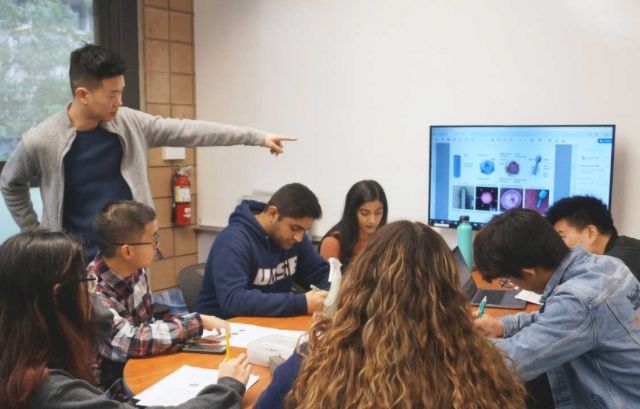A Biology Boost
Assistance during the first years of a biology major leads to higher retention of first-generation students.

For many young college students, the first years are a time of wonder and excitement and early steps toward long-term goals. These years, for some students, are equally fraught with anxiety, as the realities of rigorous curricula set in alongside feelings of unpreparedness and impostor syndrome. In the STEM fields, this results in roughly 50% of first-year majors leaving their original course of study. This is a disheartening statistic, especially given the projected need for a 33% increase in the number of STEM-degree holders nationwide to support the industries of the future. Also disheartening: Those that leave their majors are disproportionately first-generation and underrepresented students, which is contributing to a lack of diversity in both industry and at advanced levels of research.
It doesn’t have to be this way, say Mike Wilton and Eduardo Gonzalez-Niño, lecturers in the UC Santa Barbara Department of Molecular, Cellular, and Developmental Biology. In a paper published in the journal CBE-Life Sciences Education, the pair and their colleagues demonstrate that an active learning approach — the use of tactics such as in-class iClickers, small group discussions and peer-reviewed writing assignments — early in the biological sciences improves grades in the short-term and increases student retention in biology over the long-term.